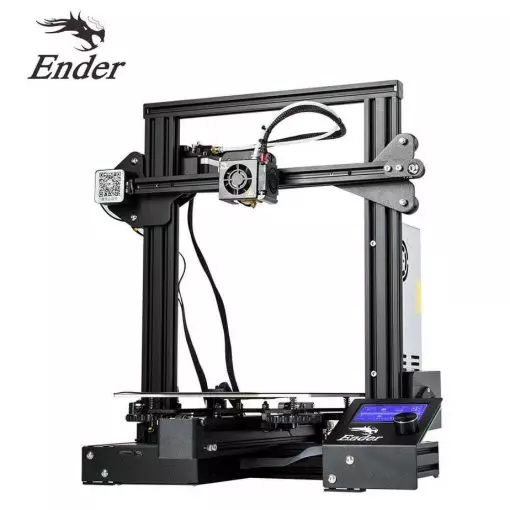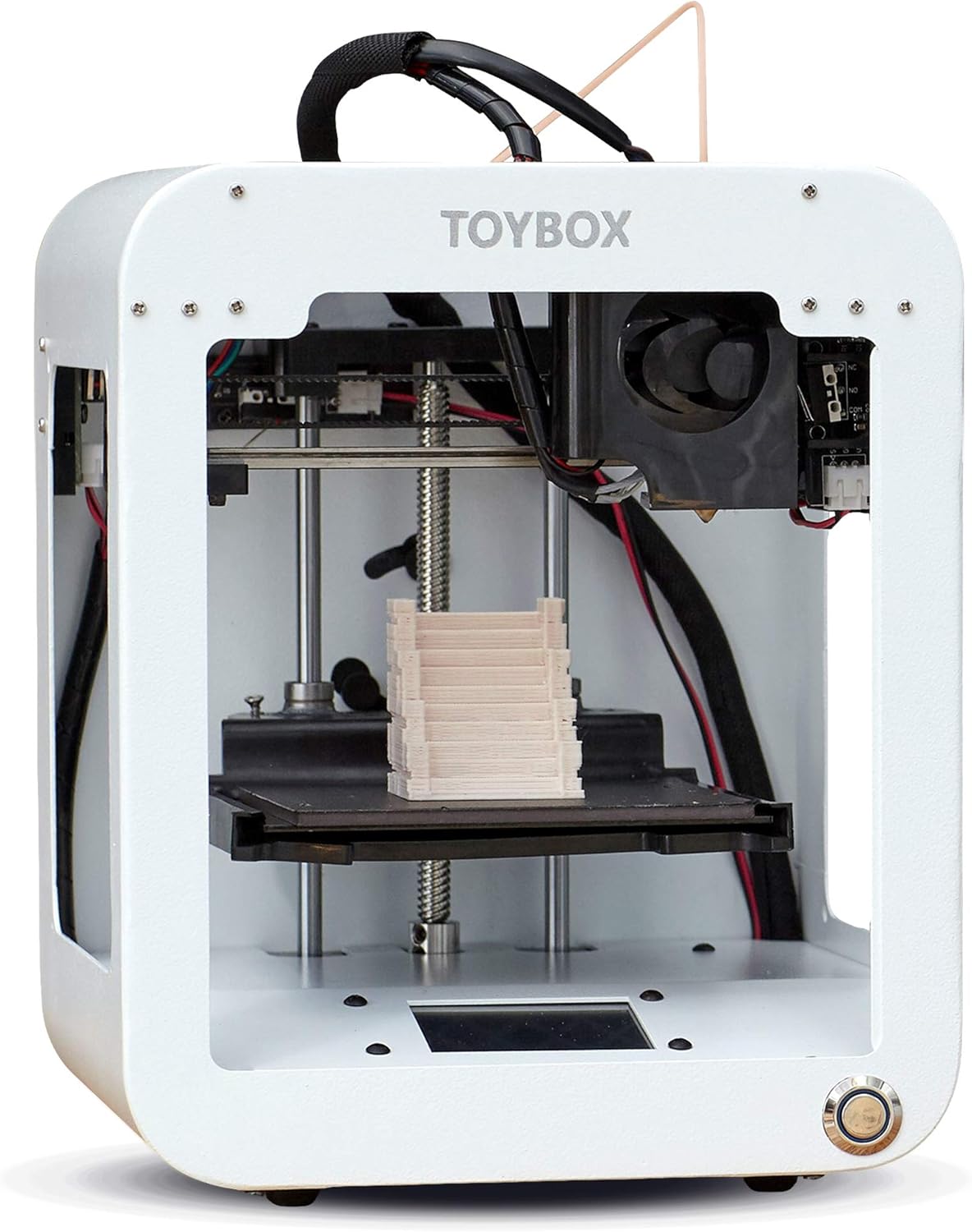Compare Ender 3 vs Toybox
Comparison between the best 3D printers
Choose the best 3D printer at the best price. The cheapest 3D printers are here.
Buy a 3D printer here with 3D Fila.
 |
 |
|
| Model | Ender 3[BUY Ender 3] |
Toybox[BUY Toybox] |
| Printing Material | Filament | Filament |
| Buy Filament for Creality 3D Ender 3 | Buy Filament forToybox Toybox | |
| Estimated price | $210,00 | $299,00 |
| Manufacturer | Creality 3D | Toybox |
| Release Year | 2018 | 2024 |
| Print Volume [mm] | 220x220x250 | 70x80x90 |
| Printer Size [mm] | 440x440x465 | 190x190x230 |
| Weight [kg] | 6,62 | 3 |
| Power Loss Recovery | NO | NO |
| Enclosed printer | NO | NO |
| Bed Leveling | Manual | Manual |
| Filament End Sensor | NO | NO |
| Bed type | Heated | |
| Power supply system | Bowden | Direct Drive |
| Standard nozzle | 0,4 | 0,5 |
| Maximum Nozzle Temperature [°C] | 255 | 210 |
| Maximum Bed Temperature [°C] | 110 | |
| Maximum printing speed [mm/s] | 180 | 60 |
| Filament holder | YES | YES |
| Camera for supervision | NO | NO |
| Recommended filaments | PLA, TPU, ABS, PETG | PLA |
| Recommended slicers | Cura, Simplify, Slic3r | Toybox |
| Maximum Resolution [mm] | 0,1 | 0,2 |
| Processor | 8 bits | |
| Display | Mono | Touchscreen 2,4'' |
| Power Supply | 24V / 270W | |
| Connectivity | SD / USB | Wi-fi |
| Operating systems | Windows, Mac, Linux | iOS, Android |
| Date of registration in the system | 2021-04-13 | 2024-08-06 |
| Release date | 2018 | 2024 |
| Extra features | The Ender 3 V1 is a DIY assembly 3D printer, a sales leader since 2017, standing out for its cost-benefit. With a wide printing capacity, it has a CNC machined structure for precision and stability. It offers high-precision prints with low noise, thanks to its innovative V-profile and pulleys. It has a self-adhesive magnetic platform for easy removal of models and excellent adhesion. The Ender 3 heats up quickly, reaching 100°C in 5 minutes, ideal for agile prints. It includes protection against power failures, allowing you to resume printing after interruptions, saving time and material. | The Toybox 3D printer is an excellent option for children and beginners. Easy to use, with intuitive setup and simplified operation via an app. The Toybox allows you to print thousands of toys and projects through a user-friendly interface. It has a removable magnetic table that makes it easy to remove printed objects. The filament is PLA, safe for children, and the printing is reliable and error-free. It also offers custom design options, allowing you to create and print drawings and photos. |
| Support for multiple colors and materials (AMS and CFS) | NO | NO |
Notes * |
||
| Cost-benefit | 6 / 10 | 6 / 10 |
| Hardware | 0.5 / 10 | 0.8 / 10 |
| Tela | . | . |
| Print volume | 3 / 10 | 3 / 10 |
| Performance | 1 / 10 | 0 / 10 |
| [BUY Ender 3] | [BUY Toybox] |
Conclusion |
| In comparing the Ender 3 and the Toybox 3D printers, several key differences and similarities emerge that cater to different user needs and preferences. The Ender 3, manufactured by Creality 3D, has been a staple in the 3D printing community since its release in 2018. It offers a larger print volume and faster printing speeds, making it suitable for a variety of projects beyond just simple prints. Its manual bed leveling and supported materials (PLA, TPU, ABS, PETG) allow for versatility, while features such as a heated bed and a robust power supply enhance its printing capabilities. Moreover, the Ender 3's cost-effectiveness is a significant advantage, earning it a higher cost-benefit rating. On the other hand, the Toybox, released in 2024, is designed specifically for children and beginners. Its user-friendly app and simplified setup make it an attractive option for those who might feel intimidated by more complex 3D printers. However, its smaller print volume and slower printing speed limit the types of projects it can accommodate. The Toybox also offers a unique selling point with its emphasis on safety and ease of use, printing primarily with PLA filament. While both printers lack advanced features such as power loss recovery and automatic bed leveling, the Ender 3 stands out as a more versatile and powerful machine, particularly appealing to hobbyists looking for a mix of quality and performance at a lower price. In contrast, the Toybox excels in its simplicity and focus on engaging a younger audience or total beginners, prioritizing ease of use over performance. Ultimately, the choice between the two depends on the user's goals: those seeking to dive deeper into 3D printing and take on more extensive projects may find the Ender 3 to be the better investment, while families looking for a straightforward, fun introduction to 3D printing may prefer the Toybox for its accessibility. |

